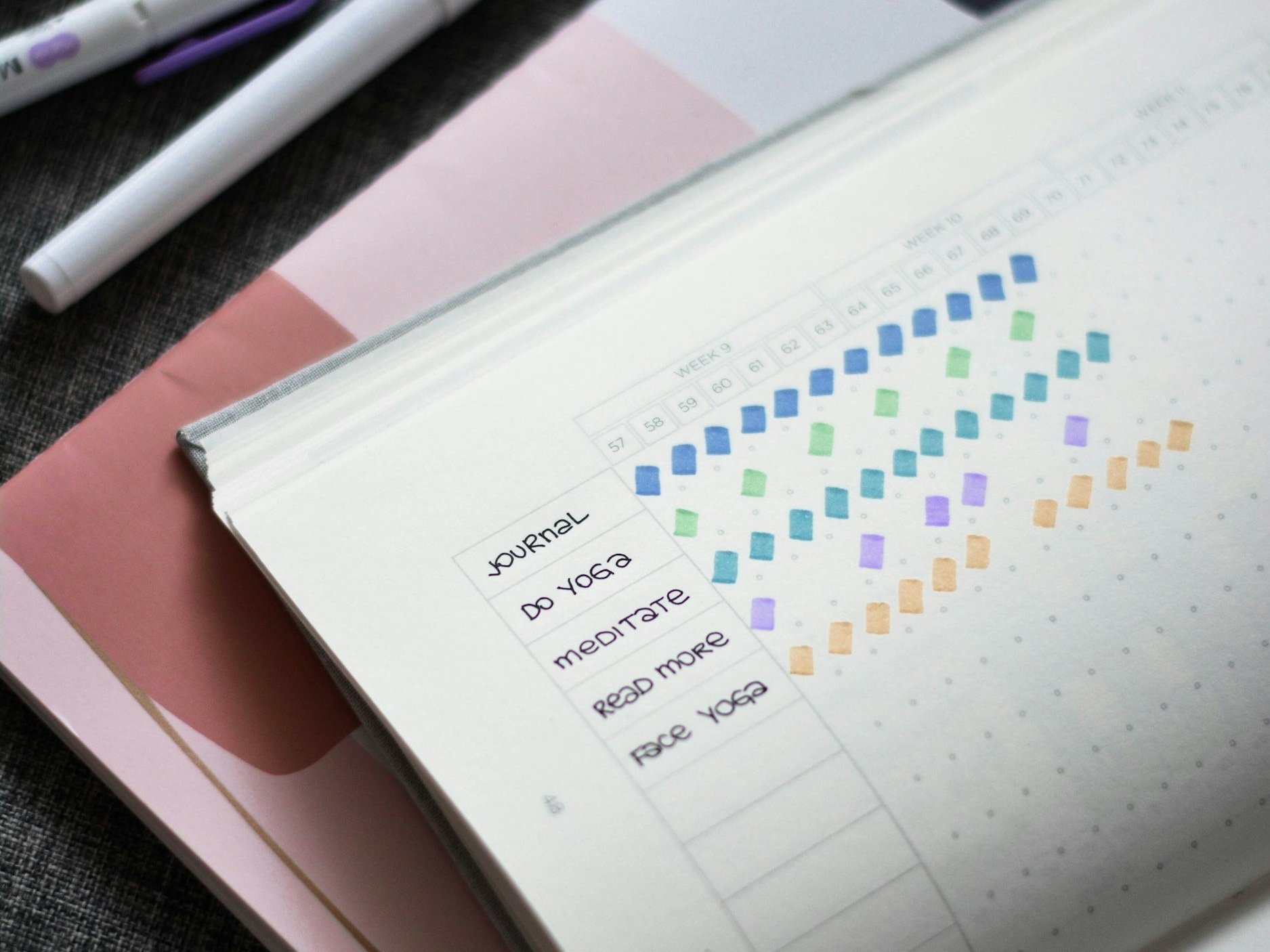Mental Health Benefits of Routine
A regular routine has been proven to have multiple physical health benefits. This can include but is not limited to improving sleep hygiene, implementing some kind of daily movement, and can help maintain a regular circadian rhythm. It is important to remember our physical and emotional health is intertwined, therefore routine has huge benefits for our mental and emotional health as well. For example, following a daily routine reduces daily stress which boosts immune responses. Routine can also provide a sense of structure and/or accomplishment and help you prioritize spending time with those that you love and doing things you enjoy. Starting a daily routine when you have not had one can be overwhelming, therefore make sure to start slow and follow the tips below.
Following a daily schedule can provide someone with structure and sense of accomplishment. Flexible daily structure is important for all age groups to follow, as it “creates a sense of familiarity and control that can reduce your stress levels and help you feel more in control of your time and life generally” (The Wellbeing Thesis, 2019). Structure can also reduce forgetting important tasks or procrastination that could increase stress, shame, guilt, etc. A sense of accomplishment is also an important part of our mental health. We can practice this by following a daily routine by checking things off our set routine list. The act itself of checking things off a list has been proven to improve mental health and provide sense of accomplishment due to it, “releasing dopamine in the brain, and we all crave this ‘feel-good’ neurotransmitter. The more tasks we complete, the more chemical rewards we enjoy” (Tank, 2019). Slowly beginning to implement a daily routine will support seeing these mental health benefits over time.
Following a daily routine can also be a good tool in prioritizing your time with people you want to be around and doing activities you enjoy. It is important to remember when creating a daily routine to put these things in your schedule to make sure that you are not just focusing on ‘productivity’. It is very important to include times that you are dedicating to things that fill your cup. This can look like setting aside 20 minutes every day to read, finding a weekly time to meet up with friends, practicing a new hobby for 30 minutes every week, or going outside to get vitamin D first thing every morning. Make implementing these kinds of things realistic and work for your life stage that you are in right now and overtime you will notice mental health benefits when prioritizing time with loved ones and enjoyed activities.
Figuring out where to start in creating a daily routine can be difficult and overwhelming. If starting this first step feels impossible, it is recommended to seek professional help to have a psychotherapist help guide you on a realistic and healthy routine to begin. Otherwise start here:
Sit down and write down a plan of how to implement a flexible routine that can be followed for an extended period of time. It can be helpful to break it up by hours of the day or general times of morning, afternoon, and evening routine. Keep this written plan somewhere accessible and visible to your daily movements.
Attempt to complete daily tasks at the same time of the day.
Try one thing at a time. We are not trying to change the way you live overnight, maybe start with one regular daily task and build from there.
Set reminders in your phone to alert you to engage in a certain task weekly or daily.
Give yourself grace, there will be days where you cannot follow your daily routine at all due to life circumstances. That’s okay, we are not looking for perfection or rigidity in this routine, just consistency.
Jamie Lingenfelter, SWLC, MSW, BSW
References
Ginsberg, L., & Solhkhah, R. (2020, June 2). Why Routines are Important for Mental Health. Hackensack Meridan Health. https://www.hackensackmeridianhealth.org/en/healthu/2020/06/02/why-routines-are-important-for-mental-health
Health Benefits of Having a Routine. Northwestern Medicine. (2022, December). https://www.nm.org/healthbeat/healthy-tips/health-benefits-of-having-a-routine
Tank, A. (2019, March 3). Why You Should Get Rid of Your To-Do List. Fast Company. https://www.fastcompany.com/90311157/why-you-should-get-rid-of-your-to-do-list
The Importance of Planned Structure. The Wellbeing Thesis. (2019, December 12). https://thewellbeingthesis.org.uk/taking-control-to-make-this-work-for-you/the-importance-of-planned-structure/#:~:text=A%20regular%20structure%20also%20creates,push%20yourself%20through%20%5B5%5D.

